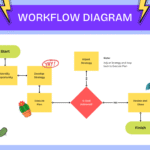Now Reading: The Surge of the Digital Nomad Lifestyle in 2025
-
01
The Surge of the Digital Nomad Lifestyle in 2025
The Surge of the Digital Nomad Lifestyle in 2025

The digital nomad trend has experienced significant growth in 2025, reshaping the way individuals engage with work and their surroundings. This lifestyle, characterized by the ability to work remotely while traveling, has garnered popularity, particularly among millennials and Generation Z. A culmination of factors has contributed to the rise of this nomad lifestyle, making it increasingly appealing to a diverse demographic. One of the primary catalysts is the widespread acceptance and normalization of remote work. The COVID-19 pandemic served as a pivotal moment, accelerating the adoption of work-from-home arrangements and demonstrating that many jobs do not require a traditional office environment.
Moreover, the allure of flexible schedules and better work-life balance has further cemented the digital nomad trend in modern society. With professionals valuing their time and freedom, the desire to integrate travel with work has become more pronounced. The advent of travel tech has played a crucial role in enabling this shift; innovative tools and applications have simplified logistics, making it easier for individuals to maintain productivity while exploring new destinations. This advancement in technology fosters a seamless connection between the workplace and the world, encouraging a growing number of people to adopt nomadic working conditions.
Global connectivity improvements, whether through faster internet speeds, increased access to digital communication platforms, or the proliferation of co-working spaces, are indispensable elements in this transformative trend. These developments have not only facilitated the essentials of remote work tools but also enhanced collaboration opportunities among international teams. As the digital nomad lifestyle continues to evolve, it is poised to redefine work norms and encourage a generation of individuals to embrace the freedom to choose where and how they live and work.
Factors Driving the Digital Nomad Trend
The digital nomad trend has been gaining momentum in recent years, significantly influenced by several key factors. One of the primary drivers is the growing acceptance of remote work arrangements by companies globally. Organizations are increasingly recognizing the benefits of flexible work options, which not only improve employee satisfaction but also promote productivity. As a result, a larger number of professionals are finding themselves liberated from conventional office settings, allowing them to embrace a nomadic lifestyle while meeting their work obligations.
Another factor facilitating this shift is the flexibility in work hours offered by many employers. With the conventional 9-to-5 work schedule becoming less prevalent, more employees can tailor their work hours to their personal travel plans. This flexibility enables digital nomads to explore new locations, cultures, and experiences without compromising their professional responsibilities. The ability to balance work and travel contributes to a dynamic lifestyle that is appealing to many individuals seeking a more fulfilling life.
Global connectivity plays an essential role in the rise of the digital nomad lifestyle. Reliable internet access is crucial for remote work, and advancements in travel technology have made it easier for individuals to stay connected from virtually anywhere in the world. Tools such as video conferencing software, project management platforms, and communication apps facilitate seamless collaboration among teams, enabling nomads to maintain productivity regardless of their geographical location. Furthermore, the abundance of co-working spaces in major cities offers conducive environments where digital nomads can work alongside like-minded individuals.
Statistical data highlights the trend’s growth, with numerous surveys revealing an increasing number of employees interested in remote work opportunities. Real-world examples, such as countries implementing digital nomad visas, further illustrate the global recognition of this evolving lifestyle. Collectively, these factors are reshaping the workforce, promoting not only the individual benefits of a nomadic existence but also the broader acceptance of remote work as a viable trend.
Travel and Work Tools for Digital Nomads
The digital nomad trend has amplified the importance of utilizing effective travel and work tools, enabling professionals to maintain productivity while exploring the globe. Central to this lifestyle is the necessity for a secure and reliable internet connection. A Virtual Private Network (VPN) is vital for safeguarding sensitive information when accessing public Wi-Fi networks, which can often be vulnerable to hackers. By encrypting data, a VPN provides peace of mind for remote workers, ensuring that their online activities remain private and protected.
Moreover, as digital nomads frequently transition between different countries, the use of eSIMs has emerged as a solution for seamless global connectivity. These embedded SIM cards allow users to switch between mobile networks without the need for physical SIM cards, providing convenience and flexibility. This technology enables travelers to access local data plans quickly, minimizing costs while avoiding roaming charges, which can significantly benefit those living a nomadic lifestyle.
In addition to internet security and connectivity, various travel tech tools enhance the overall experience for digital nomads. A reliable laptop is essential, as it serves as the main device for completing work tasks. It is important to invest in a lightweight yet powerful machine that can handle demanding applications without compromising portability. Cloud storage solutions, such as Google Drive or Dropbox, allow nomads to store files safely and access them from any location, making it easier to collaborate with teams scattered worldwide.
Productivity applications, including project management software like Trello or Asana, can also streamline workflows. By optimizing task organization and enhancing team communication, these tools play a critical role in supporting the digital nomad trend. Consequently, embracing the right combination of travel and work tools is vital for anyone aiming to thrive in the ever-evolving nomadic landscape of 2025.
Why Secure Internet is Essential for Remote Work: VPNs
In the ever-evolving landscape of the digital nomad trend, secure internet access has become a critical component of the nomad lifestyle. As more professionals embrace remote work tools, the reliance on public Wi-Fi networks increases, exposing them to considerable risks. Cybersecurity threats, such as data breaches and hacking, can jeopardize sensitive information, emphasizing the necessity for a robust security solution. This is where Virtual Private Networks (VPNs) come into play, acting as a protective barrier against potential threats.
Public Wi-Fi networks, commonly found in cafes, airports, and co-working spaces, are often unsecured. Cybercriminals can easily exploit these networks to intercept data transmitted by unsuspecting users. For digital nomads, who frequently connect to different networks while traveling, the risk of identity theft and data loss can destabilize both personal and professional endeavors. A reliable VPN allows remote workers to encrypt their internet connection, ensuring that their online activities remain private and secure.
VPNs not only provide security but also enhance the overall internet experience. They can help bypass geo-restrictions, enabling access to services and content that might be unavailable in certain locations. This functionality can be particularly beneficial for digital nomads who operate under varying jurisdictional internet regulations. While selecting a VPN, it is crucial to choose a service that includes robust security features, high-speed connections, and a no-logs policy.
Recommended VPN services for those embracing the nomad lifestyle include NordVPN and ExpressVPN, both known for their reliability and user-friendly interfaces. By utilizing these tools, digital nomads can work confidently, knowing their data is safeguarded while they navigate the complexities of remote work and travel tech. Ultimately, investing in secure internet access is essential for maintaining the integrity of personal information and enhancing productivity in a remote work environment.
Staying Connected Globally: eSIM Solutions
In the age of the digital nomad trend, effective communication is paramount for those who embrace the nomad lifestyle. One technology that has emerged as an essential tool for global connectivity among traveling professionals is the eSIM. An eSIM, or embedded SIM, is a digital alternative to traditional SIM cards, offering a seamless way for digital nomads to stay connected without the cumbersome process of changing physical SIM cards every time they enter a new country.
The functionality of eSIM technology is particularly beneficial for individuals engaged in remote work, as it allows for easy access to mobile data regardless of location. With eSIMs, travelers can download data plans directly onto their devices, eliminating the need to find a local SIM provider or face the complications of swapping out SIM cards. This is especially advantageous for those frequently moving between countries, as it greatly simplifies the logistical challenges associated with maintaining connectivity.
Several popular eSIM providers cater to the needs of digital nomads, including Airalo and Nomad. These services offer a variety of data plans tailored for different travel habits and usage requirements. For instance, Airalo boasts a vast selection of regional and global eSIM plans, enabling travelers to choose based on their itinerary and data needs. Similarly, Nomad provides user-friendly options for quick access to mobile data across multiple countries, further enhancing the convenience that eSIM technology offers to the ever-evolving landscape of remote work tools.
In conclusion, adopting eSIM solutions is an effective way for digital nomads to maintain connectivity while navigating the globe. By leveraging this technology, they can effortlessly access essential services and maintain communication with clients and colleagues, thus supporting the growing trend of remote work and the overall nomad lifestyle in today’s interconnected world.
Streamlining Travel with AI Planning Tools
The digital nomad trend has significantly transformed how professionals approach work and leisure, demanding innovative solutions to enhance productivity while traveling. To optimize this nomad lifestyle, AI planning tools have emerged as essential assets, providing functionalities that streamline both travel logistics and work commitments. Applications like Notion AI, Trello, and TravelPerk stand out for their diverse capabilities in assisting digital nomads.
Notion AI, for instance, allows users to manage projects seamlessly while on the go. This tool provides a collaborative workspace where digital nomads can create travel itineraries integrated with their work schedules. By using templates, featuring to-do lists, and setting reminders, users can ensure they stay organized and meet deadlines, even in the most dynamic environments. The effectiveness of Notion is further enhanced when paired with other tools, creating a comprehensive system tailored for remote work.
Trello, known for its intuitive interface, serves as another powerful tool in the toolkit of a digital nomad. It enables users to visualize their tasks through boards and lists, making it easier to monitor progress while balancing multiple travel commitments. With features such as due date reminders and collaboration capabilities, Trello supports a structured workflow that nurtures productivity, regardless of the time zone or location. Adding cards for travel-related tasks ensures that both work and leisure can harmoniously coexist.
Additionally, TravelPerk redefines travel management by consolidating bookings and itineraries into a single platform. This travel tech solution allows digital nomads to plan trips efficiently, access real-time updates, and make necessary adjustments swiftly. By simplifying the logistics of travel, TravelPerk enables users to concentrate on their work and enjoy the benefits of a nomadic lifestyle without the stress of disorganized travel details.
Incorporating these AI planning tools signifies a noteworthy shift for trending digital nomads, exemplifying how technology can enhance everyday experiences and improve overall productivity. By embracing such resources, digital nomads are better positioned to succeed in their endeavors while navigating the complexities of remote work.
Nomad Lifestyle Insights: Balancing Work and Travel
The digital nomad trend is gaining momentum as more individuals embrace the nomad lifestyle by combining travel and remote work. However, this unique lifestyle comes with its own set of challenges, notably in balancing professional responsibilities with the desire for exploration. Time management emerges as a critical component for those wandering the globe. Digital nomads must establish a structured routine that allows for focused work hours while also carving out time to discover new destinations.
One of the biggest challenges faced by digital nomads is selecting the optimal workspace. The variety of travel tech tools available, such as portable Wi-Fi devices and ergonomic travel desks, makes it easier to create a productive environment anywhere, but finding the right balance is essential. Some prefer co-working spaces, which foster collaboration and networking, while others may choose cafés or shared accommodations that can offer a more relaxed atmosphere. Each option comes with its pros and cons, and the choice largely depends on personal preference and work requirements.
Staying productive on the road demands effective time management strategies. Digital nomads can benefit from utilizing remote work tools like project management apps and time-tracking software, which aid in prioritizing tasks and monitoring progress. Moreover, setting clear boundaries between work and leisure is crucial to avoid burnout. This can be achieved by establishing specific hours for work and engaging in local activities afterwards, ensuring that both professional goals and travel experiences are met.
In 2025, popular destinations for digital nomads include cities with vibrant cultures and ample resources for remote work. Locations such as Bali, Lisbon, and Mexico City not only offer beautiful surroundings but also have thriving expatriate communities and excellent infrastructure. These destinations help facilitate a seamless blend of work and adventure, making them attractive options for those pursuing a nomadic lifestyle.
Lifestyle Tips for Staying Productive on the Move
The emergence of the digital nomad trend has given rise to a unique set of challenges and opportunities for individuals striving to maintain productivity while traveling. For those embracing the nomad lifestyle, implementing effective workflows is essential. Establishing routines can provide a semblance of stability amidst ever-changing environments. Consider starting each workday at the same time, even when in a different location. This consistency helps condition the mind for productivity, making it easier to transition into work mode.
Finding suitable workspaces is another critical factor to enhance productivity for digital nomads. When traveling, seek out co-working spaces, cafes with reliable Wi-Fi, or quiet parks that offer ambient nature sounds. Each destination may have a unique blend of travel tech that facilitates a comfortable and efficient working environment. Apps that help locate nearby co-working spaces or cafes can save time and effort. Additionally, working in vibrant surroundings can spark creativity and drive, ultimately benefiting performance.
Maintaining a healthy work-life balance is crucial for long-term success. It’s easy to blur the lines between work and leisure when your office is wherever you go. Set specific work hours and adhere to them diligently. During off-hours, engage fully in local experiences, connecting with your surroundings and fellow travelers. Remember to schedule breaks throughout the day to recharge, both physically and mentally. This practice ensures that productivity does not come at the expense of exploring new cultures and destinations.
Moreover, establishing a support system of fellow digital nomads can be incredibly beneficial. Sharing tips on effective remote work tools or discussing personal experiences can foster a sense of community. In conclusion, by focusing on effective workflows, identifying productive environments, and balancing professional and personal time, digital nomads can thrive in their pursuit of a rewarding and productive lifestyle on the move.
As the digital nomad trend continues to surge, the necessity for reliable tools and services becomes increasingly apparent. Whether you are an experienced traveler or just beginning your journey into the nomad lifestyle, having access to essential tools can make your transition to remote work smoother and more effective. Below are some reputable affiliate recommendations that can enhance your travel experience and support your productivity on the go.
First and foremost, maintaining a secure and private Internet connection while traveling is crucial. VPN services such as NordVPN and ExpressVPN are both excellent choices. These services not only provide encryption but also enable you to bypass geo-restrictions, ensuring that you can access your usual resources no matter where you are in the world. The peace of mind that comes from knowing your data is protected makes these VPNs indispensable for any digital nomad.
Next, staying connected is a crucial aspect of the digital nomad lifestyle, which is where eSIM providers like Airalo and Nomad come into play. These services allow you to purchase mobile data plans digitally, eliminating the hassle of swapping physical SIM cards. With data access readily available in multiple countries, you can focus on your projects without the worry of finding local SIMs.
For planning and managing tasks, AI-based tools such as Notion AI, Trello, and TravelPerk provide practical solutions. Notion AI can streamline your note-taking and project management processes, Trello offers a visually appealing way to organize tasks, and TravelPerk assists with travel arrangements, making it easier to focus on your work. Integrating these travel tech tools into your daily routines will optimize your workflow and help you adapt quickly to your nomadic lifestyle.
By incorporating these recommended services into your routine, you will not only enhance your productivity but also enjoy an improved travel experience. The right tools can make the digital nomad trend a sustainable and fulfilling way of life.



















